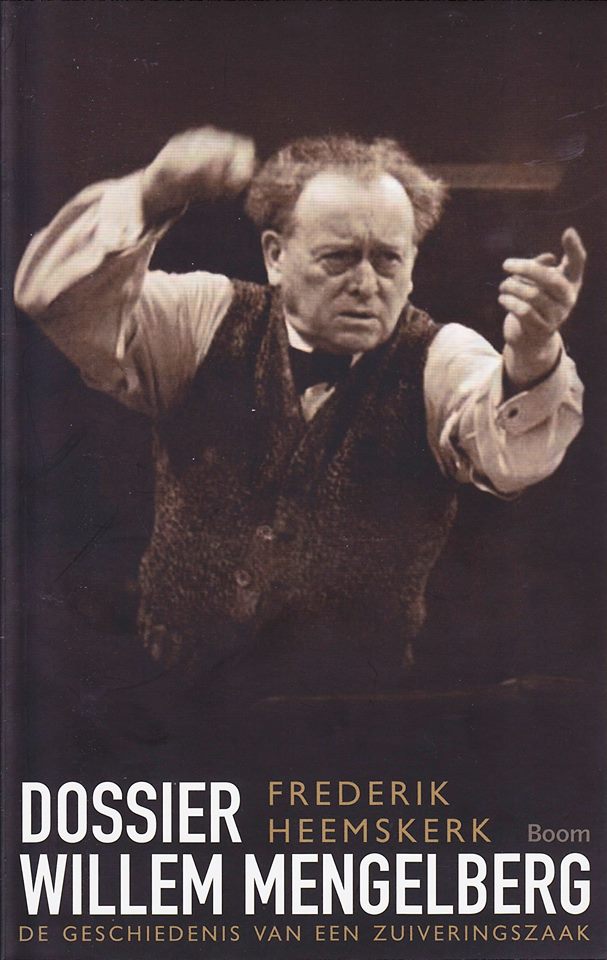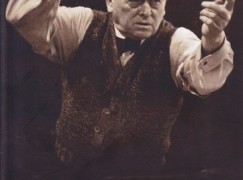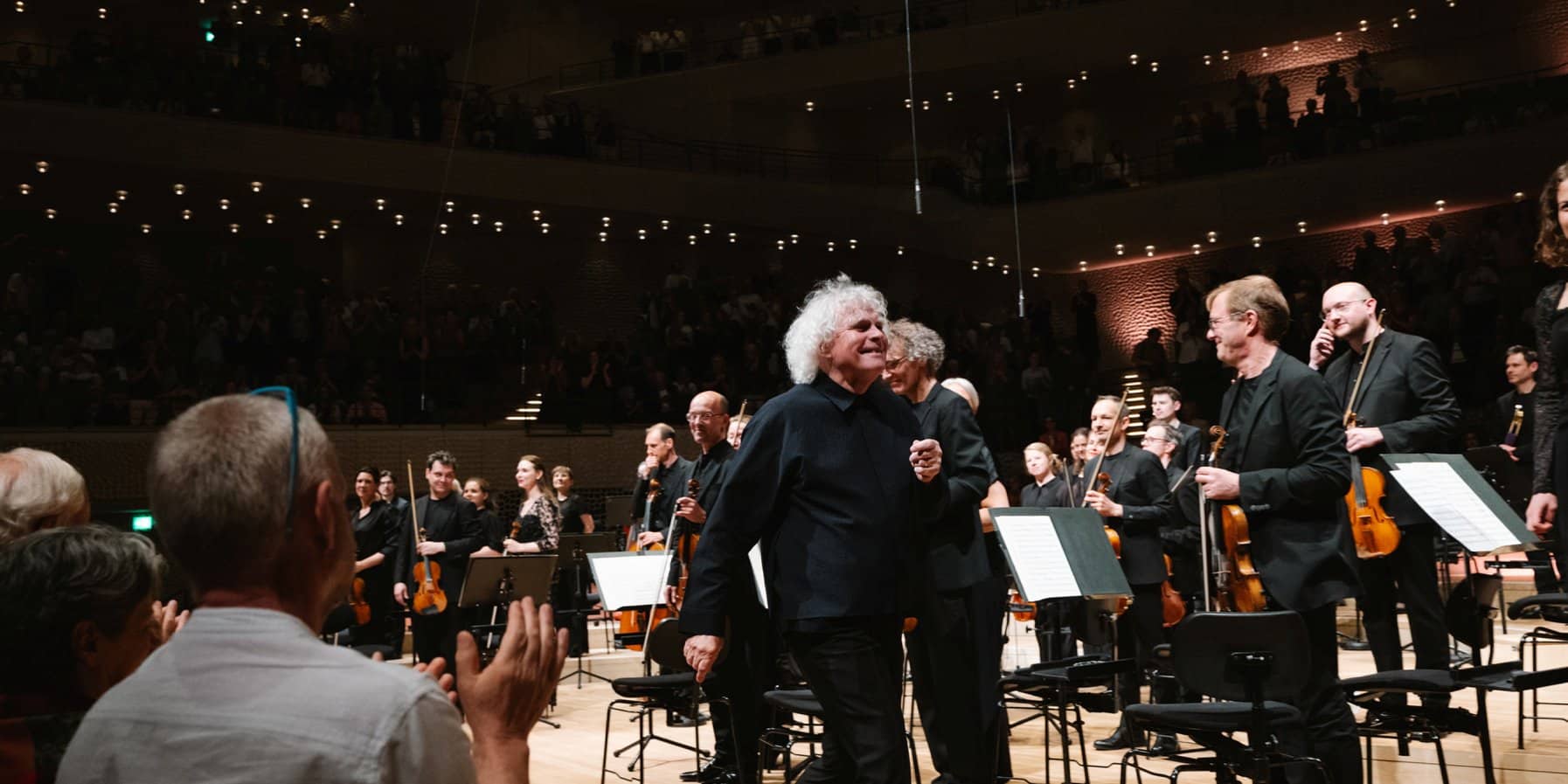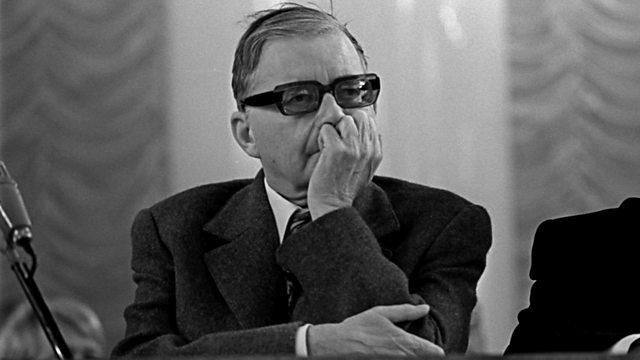How twisted was Willem Mengelberg? Worse than you’d imagine
mainIn the new issue of Standpoint magazine I assess the latest – and surely the last – biography of the darkly compromised Dutch conductor.
There is new evidence of his attitude to Hitler – and none of it is good.
He worshipped Mussolini and collected picture postcards of Adolf Hitler. He was rude about Jews and, when the Germans invaded his country, gave an interview to the racialist Völkischer Beobachter, announcing his joy at the occupation: “We stayed up all night, ordered champagne and celebrated that great hour. It was truly a great hour . . . Europe awaits a new future.”
There is more. A lot more. Including sexual manipulation.
Read here.







I find it odd, given his supposed adoration of the fascists, that he was a close friend of the very Jewish composer and conductor, Gustav Mahler. He met Mahler as early as 1902 and championed his work, inviting him to play his 3rd and 4th symphonies in Amsterdam. Being a conductor of that era pretty much meant being photographed with the Nazis so that in itself doesn’t mean much. Plus, his parents were Germans so this may account for his German nationalism. Perhaps there is something overly simplistic being stated by the biographer? Who knows, we may never know.
I would be far more interested in knowing the attitude that he took to musicians/players/composers whom the Nazis disliked and acted against. Did he support the Nazis? Did he perform works by banned composers? What was his attitude/supportiveness towards Jewish players in his own orchestra during WWII? These are much more critical issues and far more revealing than whether he toasted the Germans when they invaded the Netherlands.
He was from an era when the conductor/music director ruled with an iron fist and he is noted for that. It’s difficult to imagine him and Toscanini as conductors of the New York Philharmonic, but they were from 1922 to 1928.
He is certainly considered a great conductor. Like Bernstein and Wilhelm Furtwängler, two other greats, he took a free hand with tempos.
Perhaps we should not be so dogmatic with him and give him the benefit of the doubt, at least musically?
[[ Perhaps we should not be so dogmatic with him and give him the benefit of the doubt ]]
Oh, and let’s have a ping-pong tournament with the Waffen-SS while we’re at it, eh?
He used his position as the leading Dutch conductor of the era to actively support and promote national socialism, nothing else matters. I don’t recall the occasion but he rose multiple times to give the sieg heil salute. Musically, he had a discussion with AT claiming justification for performance practices in a Beethoven symphony based on insights gleaned from the friend of a friend of a friend Beethoven. AT replied to the effect that I prefer to use my own authority the score.
When Mengelberg rehearsed in NY, Toscanini would secretly slink into one of the boxes with a score and chek-out how M did it.
“With no limits to the time he could spend, he bored musicians into submission with dreary harangues and constant repetition.” Certainly Toscanini didn’t pick that up from Mengelberg. But the earlier Mengelberg as documented on recordings could be extraordinarily incandescent (a maddeningly incomplete live D&T from 1924 or the 1927 Heldenleben; earlier ACO recordings) or dull as dust (a 1930 Eroica).
If I were forced to conduct – or listen to – Heldenleben – I’d be incandescent too.
Really? It is the most self-defeating, hilarious joke by Strauss, a ironic self-depriciation from the first to the last bar. Pauline must have had the best laugh of her life.
Many pianists of a certain generation traded on the fact that they had studied with someone who had studied with SOMEONE. Performance practice just changes – in spite of the best efforts of some artists to deny its spontaneous nature. And if you want to know what any composer meant, look at the original manuscript – don’t rely on gossip.
The Concertgebouw Orchestra has an online archive (http://archief.concertgebouworkest.nl/nl/archief/zoeken/) so you can check what composers Mengelberg championed.
For me, he’s another great conductor with awful politics.
Agreed. I heard that he was very impressed by Horowitz’s playing (according to Horowitz who in turn seemed to have like him), but perhaps the Mengelberg discrepancies are not as odd as we’d tend to imagine. Discrepancies such as this seem less uncommon than we think.
All very good questions that should be answered seriously and not in a drive-by biography.
Once again the graveyard is dug up and another
dead horse is found to give rise to yet another set of
speculations.What is this strange morbid compulsion to dig up past conductors?One can
understand Borstlap being the cemetery gate
keeper but for the living cannot we give the dead
their earned rest and leave them be. What they were or were not has little bearing on to-day.
I’ve long thought Bernstein a better composer than conductor – all that un-necessary emotion on the podium (only when there was an audience) and the hi-jinx as well. And although he talked well about music – The Young People’s Concerts were not only for young people – I didn’t much care for his conducting of Classical composers.
Patty, you got it all wrong. As a composer Lennie was merely a “chiché-ist”, meaning everything between Mahler-Stravinsky-Copland-Sullivan-Fauré-Bloch going Broadway, all boiled up in a big pot – but he was good at it (!)
As a conductor he was a genius. He simply made you fall in love with the music and with your profession, just ask old orchestral players.
The odds to find anything close to his equal today are micro-decimalic.
I am not interested in musicians’ race, politics, sexuality, culinary peculiarities or religion. Conductors should be judged as conductors, violinists as violinists, etc.
Yes, but when the reality of the world intervenes into the artistic field, artists have to judge their position and act accordingly. And this is not up to the artists in question to decide, but they are forced to deal with that reality.
“Europe awaits a new future”
That future is once again emerging in the here and now, in Germany, in France…. where this week, Germany’s government commissioner on antisemitism suggested Jews should not always wear the kippah cap in public.
Are we so sure there is no Mengelberg hiding in plain sight in Germany and under the right confluence of political and musical personalities, will not emerge to do no less than what Willem did?
We like to think that the allies triumphed over the axis and therefore Toscanini triumphed over Mengelberg, but if the future could relitigate the past, there could be no more recordings left of Arturo and only hagiographies of Willem would exist
That ‘future’ is of another nature than the one in the thirties, it seems to me, although both movements are born from populism, and exploited by cynical politicians hungry for power.
And when the Federal United States of Europe become a fact, and all our nation state laws will be abolished, there will also be some hundred millions of people celebrating with champagne.
History will judge us…
Sobering thought, anon. Though any of Mengelberg’s recordings can be heard as well as Toscanini’s.
great conductor, heavily underrated for misinterpreted political reasons.
What shoud Mengelberg have done? This is the question so many German artists struggled with in the thirties. He could have left for America, and what would have happened with the orchestra? No doubt a Germanophile conductor would have taken his place, but at least M would have avoided the association. Being a German by birth and identifying with the German tradition, and exercizing the regular authoritarian rehearsel practice, probably he was merely opportunistic, as we see so often with conductors (Karajan springs to mind). Indirectly, such behavior helped postwar atonal modernism by strengthening the association of the classical tradition with totalitarian rule. And thus, Beethoven’s progeny inherited, via ‘titanic conductors’, the notorious ‘Nachkriegsschuldbewältigungsmusik’ which is the opposite of the original idealistic humanism.
Sorry, he was not merely opportunistic or primarily concerned with the welfare of the CO he was an impassioned promoter of a system which, by the time Holland was invaded, practiced racist and authoritarian subjugation of non-aryans. The objectives of national socialism were clear, save perhaps for the final solution, by the time he opted to join in. Say what you will about HvK & WF even their cooperation pales in comparison to WM.
Mengelberg was born in the Dutch city of Utrecht and therefore Dutch by birth. His parents were German.
Yes, formally so. But obviously his cultural identification was German. To which extent does a passport define identity? Cultural identity?
Mr. Borstlap, just own up to the fact you made an error, plain and simple.
What should he have done? How about following the example of Toscanini? Or, for that matter, the example of Fritz and Adolf Busch – not Jewish, not Socialist, but disgusted by Hitler and among the first to emigrate.
There is a name for the likes of Mengelberg: Quisling.
Then there was Elisabeth Schwartzkopf – a brittle looking and sounding soprano.
What does “a brittle looking and sounding soprano.” add to the discussion?
When given a hard choice between idealism and bread, most of us will choose bread. Most (but not all) musicians who could afford to leave the occupied countries did leave; those who could not (the vast majority) had to stay. Mengelberg chose to stay. Diego Rivera said that all art is propaganda – perhaps he was right. None of us choose the places we are born or to whom we are born. When our conscience can no longer tolerate the political climate we inherit, the right thing to do is leave (if we are able.)
Indeed. But it is all determined by very individual circumstances and prospects, and the contacts one has abroad. So many fugitives who set out for England and the USA disappeared in the mists of indifference.
I would be very skeptical about the Völkischer Beobachter quote actually coming from Mengelberg. After all, he was one of Mahler’s staunchest supporters, as an artist and a man, and proselytizers. The inconsistency doesn’t make sense.
Mengelberg, like Beecham and Stokowski, can be found say just about anything. And there are more than a few instances where they disagree with their former selves. It is hardly unique.
But consistency is the very last thing to be expected from nazis.
I think the inconsistency stems from a blinkered view in which music and politics were separated in his mind. So, he could tick off the VPO after the anschluss that they were ignoring the music of Mahler, yet celebrate the political regime that had banned his music.
You can see something similar in some of Furtwangler’s earlier statements after 1933, when he gave a cautious welcome to the ‘new Germany’, while arguing for a place in that culture for people like Walter and Klemperer, because of their musical talents.
Of course, their strategy failed on its own terms, as the corruption of German musical life by the Nazis, rather ironically, helped kill off a musical tradition going back to Bach. That is why I have little time for the arguments , especially used in a self-serving way by Furtwangler, that they stayed to help preserve the classical tradition.
I must say that I find Mengelberg a very difficult person to come to terms with. He did so much for Mahler and his music, almost single-handedly created one of the world’s great orchestras, and I almost always find his performances breathtaking. And yet, his behaviour during the occupation is repulsive, far more so than Furtwangler, Karajan and many other greats. Cortot is the other who I find it so difficult to reconcile the man with his artistry.
Anyway, I’m looking forward to reading the biography.
The human mind is capable of putting different things in different boxes – and when the differences get out of proportions, the result is a form of schizophrenia.
Perhaps Mahler might have unwittingly ‘poisoned the well’ himself. In the effort to point out just how tactless Mahler could be at times, biographer Jens Malte Fischer brings up an incident where Mahler ‘made fun of’ and mildly derided Mengelberg to the Concertgebouw orchestra. Obviously, Mengelberg was not in the room. I believe this was during rehearsals of the seventh symphony (they performed it in Amsterdam, Den Haag and Utrecht). It’s difficult not to believe that word of this incident wouldn’t have leaked back to Mengelberg.
When driven out to take a long walk along the windy North Sea, Mahler made some comment of not wanting to come back there. As much as Mahler wanted his works to be loved, I get the impression that the almost sycophantic behavior of the Amsterdam claque made him a bit uncomfortable. Fischer gives the impression that Mahler pined for Austria. As much as Mahler traveled about, he was not, by nature, a good traveler. Then again, there was the first big Mahler festival in Amsterdam in 1920. Actions can speak louder than words.
My own attitude towards Mengelberg is ambivalent. I have difficulty believing that Menglelberg’s exaggerated ‘interpretation’ (tempo relationships) of his Mahler 4 recording is a true representation of how Mahler conducted it. Then again, Mahler was always full of surprises. On the other hand, given how seriously Mengelberg took the R. Strauss “Ein Heldenleben” tone poem (not a work I’m fond of), I’m not that surprised by Mengelberg’s enthusiasm for, and coziness to, the Third Reich. We’re all capable of making major blunders.
Wrong picture is shown. Did you read the actual book or is it mere copy paste, because that’s how the “book review” appears to be…
He gave speech from the podium welcoming Artur Syß Inquart as gov general of the Netherlands and welcoming a new era of Nat Socialism. It‘s on tape. He betrayed his country. Inquart was hanged in Nürnberg.